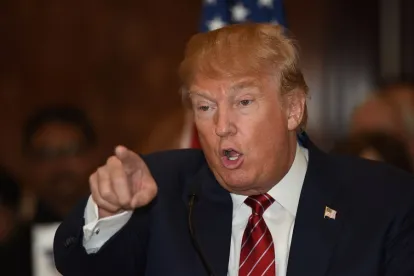It is safe to observe that modifying or repealing the Affordable Care Act (aka as Obamacare) will be the top health care-related priority of the Trump Administration.
Trump spoke about repeal and replace often — he even called for a special session of Congress to repeal it — and while it was not among his very top domestic issues, on the last day of the campaign, he called for its repeal on day one.
Even with a Republican-controlled government, however, enacting such legislation would be very challenging and time consuming. He has begun to temper the call for “full repeal’ since the election. Yesterday, Trump said that he will keep in place parts of the law including provisions that allow children to stay on their parents health insurance until they turn 26 and those that prevent insurers from refusing coverage for preexisting conditions. So this is still very much a work in progress with practical difficulties involved.
Among the reality checks ahead are: (1) how difficult it will be to take health insurance away from tens of millions of people and (2) how realistic is it that Republicans will come together in the House and Senate on a replacement plan when so many of the stakeholders — hospitals, insurers, doctors, patient groups, the drug industry and Governors who have expanded Medicaid — might push back on proposed solutions.
We all know how wrong polls can be. The Kaiser poll indicates that a majority of the public is dissatisfied with Obamacare, but it is unclear how dissatisfied individuals are — enough so that they are willing to lose coverage or adjust to a new form of coverage?
Not surprisingly, Trump, Pence and congressional leaders in this area have recently talked about the need for a transition from Obamacare to whatever the replacement plan will be. Their statements recognize how challenging this effort will be.
But there is no question that Trump believes he has a mandate to move to repeal or radically revise the law. And the Republican Congress will clearly pursue it. They might have the support of a few Democrats, too, especially those Senators who are up for reelection from states that supported Trump.
So where do we look for details? Trump has said repeatedly that he “wants to take care of everyone.” He has discussed selling insurance across state lines, enhancing HSAs, establishing high risk pools and block granting Medicaid. We’ll have to see if that plan fulfills his promise that “no one should slip through the cracks.”
Trump’s proposals match up in part to Speaker Ryan’s proposal — A Better Way — which has additional details on a replace plan. His includes many of the consumer protections in Obamacare, such as those Trump mentioned yesterday, including protecting young adults on family plans up to age 26 and protecting individuals with pre-existing conditions. And Ryan’s plan is intended to cover everyone either through an employer-based plan, Medicare, Medicaid or through tax credits.
Again, we will have to wait and see if the Republican majority can agree on that approach, especially new tax credits for purchasing health insurance. And all of this will have to be achieved during a time of transition in leadership of the Energy and Commerce Committee, and its Subcommittee on Health, which is one of the key healthcare-writing committees.
In the meantime, there are a number of actions Trump could take administratively to impact the program. And he could cite to Obama’s actions in that regard. The Obama Administration delayed the employer mandate — through a blog as many will recall. And the Obama Administration allowed insurance companies to extend non-compliant health plans without statutory authority. It is likely that Trump will use whatever powers are or seem to be available (even the use of Innovation grants to states) to weaken the program while Congress works through the process.
Although it did not receive as much attention during the campaign, entitlement reform could be part of the Obamacare repeal effort. Such an effort could include the restructuring Medicaid and Medicare. It is possible that rather than rolling back the Medicaid expansions entirely, especially since some Republican states are invested in the current system, Congress could try to change the structure of the Medicaid program from an open-ended entitlement to a per capita cap or block grant. This is a financial restructuring that many Members and past Administrations have wanted to do for decades. It is possible that the Trump Administration and Republican Congress could succeed or get closer to succeeding this time.
And similarly, we might see action on Medicare reform with repeal of the Medicare provisions in Obamacare. Trump hasn’t provided many details on his own, but Ryan has worked on reforming Medicare financing for years, as Chair of the Budget Committee and Ways and Means Committee, and recently as Speaker of the House. Ryan’s A Better Way proposes such reforms as combining Medicare Parts A and B, repealing the ban on physician-owned hospitals, and possibly, but less likely, creating a premium support program or a voucher for Medicare beneficiaries.
Repealing or modifying Obamacare is likely to take up all the health care bandwidth in the next Congress. But there are other significant issues of bipartisan interest — such as reforming the mental health system, NIH funding and research and further work on the opioid epidemic. It is too early to tell whether the Trump Administration will be interested in these initiatives. Or if Congress will have time to address them.




 />i
/>i

